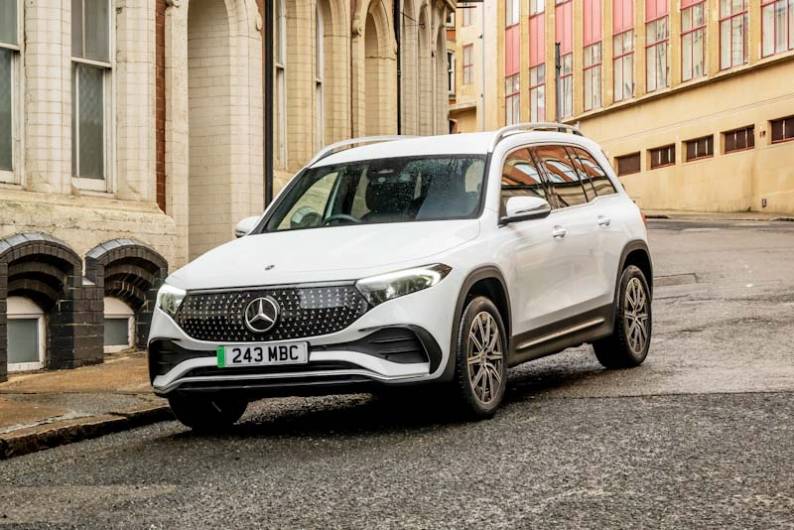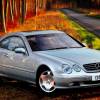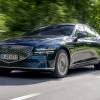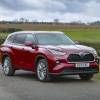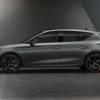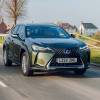
RAC sale – up to 33% off*
• Roadside cover from £5.29 a month†
• We get to most breakdowns in 60 mins or less
• Our patrols fix 4/5 breakdowns on the spot

Mercedes delivers us the market's first mid-sized seven-seat EV. Jonathan Crouch drives the EQB.
Ten Second Review
It's very difficult to package a mid-sized EV so effectively that up to seven people can sit inside it. But Mercedes has pulled off that feat with this car, the EQB, which usefully broadens its electric vehicle line-up. It's based of course on the combustion-engined GLB crossover and shares much of that car's premium appeal.
Background
There's a flood of mid-size Crossover electric vehicles out there at present. So any fresh class entrant had better have something fairly unique to offer. Fortunately, this one does: the Mercedes EQB. It's one of what seems like a continual stream of different Mercedes EQ electric models, with the 'B' in this case standing not for the brand's mini-MPV but designating instead something you may already have guessed from a quick glance at this car: the fact that this is the full-battery version of the Stuttgart maker's GLB mid-sized SUV.
Engineering and technology-wise, this car shares everything that matters with its smaller EQA hatch stablemate - including a slightly compromised MFA2 chassis not originally designed for EV use. This model hails from quite a different production facility though. Instead of Rastatt in Germany, it's screwed together at Kecskemet in Hungary, where the GLB is built. A change from the original plan, which would have seen the EQB produced in Daimler's French Hambach plant alongside little smart cars. Regardless of provenance though, what we've got here looks as if it might be a smart choice for a forward-thinking family.
Driving Experience
The EQB sprints away from rest pretty quickly, despite tipping the scales at around 2.2-tonnes, a legacy of the fact that Mercedes makes this model run on an MFA2 platform originally designed for combustion models. That being the case, you might have expected the brand to have countered that extra bulk by fitting a more powerful propulsion system but if anything, the opposite is true here. From launch, this EQB was only available in twin motor '4MATIC' AWD form and if you cast a glance around the segment, you'll find that most rivals believe around 300hp is necessary to properly propel a 4WD EV in this class. Well to approach that with this Mercedes, you've to stretch to the rather pricey top '350' version we tried, which offers 292hp. The EQB 300 model that more customers are likely to choose has only 228hp. This model's close relative, the EQA, sells best in front-driven 190hp '250' form but from the launch of the EQB, the brand wouldn't tell us whether this car would also be offered with that more affordable powerplant.
Still, you won't be choosing an EQB as an autobahn burner - and if you did, the 'burning' in question would primarily be through this model's rather restricted driving range, WLTP-rated for these two 4MATIC variants at a best of 253 miles - in a class where better versions of comparably priced rivals regularly deliver figures well over the 300 mile mark. Mercedes says it's developed an EQB variant capable of a 500km (310 mile) range, but that will only match (and in some cases still not equal) the current class standard. Whatever variant of this model you choose, you'll find it easy to drive and particularly in its element around town, where you'll appreciate the light steering; and the compact 11.4-metre turning circle you might need for getting into those tight charging bays.
Design and Build
You'd certainly pick up this car's similarity to its GLB counterpart if you happened to know the Mercedes product range. As with the EQA, the EQB delivers a subtle reworking of the combustion engined car it's based on. Which means a boxy profile embellished here with a more aerodynamic front end featuring the usual Mercedes EQ-specific closed-off grille and headlight signature. In the same way, the tailgate gets a full width LED tail light bar, as with other EQ models.
Inside, it's also much as you'll find in a GLB, apart from a few trimming changes and the addition of specific 'EQ' electric vehicle menu for the centre screen, which is 10.25-inches in size, like the adjacent instrument binnacle display. There's comfortable space for a couple of adults on the back seat - and room for three at a squash. The key difference with an EQB though, is its relatively lengthy 2,829mm wheelbase, which allows it to offer an optional third row of seats, though Mercedes warns that these are only really suitable for children. Fold those seats down and you'll get 465-litres of boot space. If you opt not to have them, that rises to 495-litres of carriage capacity. Think in terms of about 75-litres less than you'd get in a GLB.
Market and Model
OK: what'll you pay for this seven seat, family-sized all-electric battery-powered Mercedes-Benz? Because this car bears the Three Pointed Star, you won't be expecting it to be inexpensive: it isn't. The brand only offers the two 4MATIC AWD versions of this car, which start with the EQB 300 at just under £55,500 and culminates with the EQB 350 variant we tried, priced from just under £57,000.
There's a choice of three mainstream trim levels, 'AMG Line', 'AMG Line Premium' or 'AMG Line Premium Plus' spec. If Mercedes decides to import the front-driven single motor 190hp EQB 250 model you can choose on the Continent, the entry price for this model line will be lower but realistically, you're still going to need a budget of around £50,000. Something else the brand offers on the Continent is a five-seat-only EQB, but for the UK market, you have to have three seating rows in this car.
So, premium pricing - but then you probably expected that. At least you get plenty of kit for that, including the ritziest version of the brand's Widescreen MBUX infotainment set-up, with twin 10.25-inch displays for the central screen and the instrument cluster, both of which feature EQ branding and special graphics. Top models get niceties like an electrically-operated panoramic glass sunroof, a Keyless-Go Comfort package, an augmented reality navigation system, an advanced sound system and wireless charging for compatible smartphones.
Cost of Ownership
The elephant in the room here is driving range, so let's get straight to it. For either of the 4MATIC variants currently offered, the EQB 300 and the EQB 350, Mercedes is quoting a range figure between 242 and 253 miles. A figure which wouldn't be much improved if the brand were to decide to also import the front-driven EQB 250 variant - at least if our recent test of the similar EQA 250 model is any guide. To give you some perspective on that, even a little Renault ZOE supermini is rated at 238 miles between charges. For AWD versions of mid-sized Crossover EVs like this EQB, the current class benchmark is somewhere just over the 300 mile mark and the seven-seat version of Tesla's Model Y 'Long Range' (which when it finally makes our market in 7-seat form will be this car's closest rival) manages 331 miles. Whichever EQB variant you select, you're going to need to make pretty proactive use of the brake regenerative settings to what is possible.
The 100 kW DC on-board charger allows the car to charge the 66.5kWh battery from 10 to 80 per cent in around 40 minutes, and from 10 to 100 per cent in five hours and 45 minutes using an 11kW wall box. Navigation with Electric Intelligence - included as standard - calculates the route that will get the driver to their destination fastest, taking into account charging times, and taking the stress out of route planning.
A three-year subscription to the Mercedes me Charge public charging service is also included. With Mercedes me Charge, customers have access to what is currently the world's biggest charging network: this currently comprises more than 450,000 AC and DC charging points across 3 countries. Mercedes me Charge allows customers convenient use of the charging stations of various providers, even when travelling abroad. By registering just once, they can benefit from an integrated payment function with a simple billing process. Mercedes me Charge enables customers to charge at more than 175,000 public charging points throughout Europe; Mercedes-Benz ensures a subsequent offset with green power.
Summary
We feel much more convinced by this EQB then we did by its EQA stablemate. Mainly because this more versatile design has a unique selling point denied not only to the EQA but to most other mid-sized EVs out there: seven seats. So larger families who lack a lottery win and don't want a converted van can now join the electric vehicle revolution.
What'll they find here? The usual eye-catching Mercedes front-of-cabin experience, classy screen technology and the rather smug sense of self satisfaction that comes in having a car with the Three Pointed Star on your driveway. On top of that, the brake regeneration system is excellent. All of which means that right here, right now, this is the best affordable EV Mercedes makes. And that makes it a difficult car to ignore.

